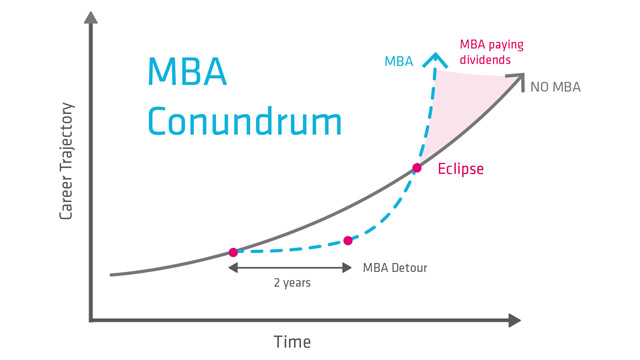Launching a startup is hard, but is at least as much intense and fun as studying an MBA. After two years going through the intensity of the MBA program, you’re ready to go on the next journey, the entrepreneurial one !

Pre-MBA / Pre-startup life
My background is in computer sciences engineering. I have been mainly working in tech before my MBA. During 7 years I have hopped from developer to software architect in different companies and different industries. I was clearly taking the career path of a IT technical expert.
During that period I realized to what extent IT is something that everyone wants but only few are the ones that are really good at it. Nowadays, coding schools are popping out because there is such a need. Also I realized that many people have startup ideas, but from all the ideas that people have, only few end up really being implemented for lots of good reasons (no time, no skills, no team, no money, …). Then I thought, but why am I not moving forward with a couple of ideas? In the end, I’m the technical guy, I should be able to build them.
I quickly realized that, in order to launch a successful startup, it takes much more than just having the technical skills. Then I realized that an MBA would be the right path for me in order to learn the skills that I was missing and get the international exposure to grow big. In particular, the IESE Business School with its MBA was clearly standing out and offering much more than many other programs for general management and entrepreneurship.

The MBA atmosphere
In 2015 I enrolled in the IESE Business School MBA in Barcelona for an amazing jouney. During two years I got immersed in an extremely different environment than the one I had been confronted before. Switching from developer and engineer collegues to business men with so many different backgrounds and cultures. It has been for me a transformational experience in many ways, but primarily in the frame of mind. Actually I realized that my premise of requiring technical skills to launch a startup was wrong… you actually need much more skills: business, finance, management, HR, … and actually every entrepreneur is lacking at least a couple of them. What you really need is the passion, the capacity to learn fast and more importantly, to gather the right people around you.
During the second year of the MBA I saw a lot of different companies coming on campus to recruit. They all seemed really nice with very competitive salaries and interesting jobs … but also very intense recruitement processes because lots of students want those jobs and are willing to do the CLEP test prep. At some point I really questioned myself about the path I was taking. Is it really reasonable to try the startup path after an MBA while so many great offers will probably never seem so close? Yes clearly, it takes a lot of motivation not to apply and stay aligned with your objective when you have all this FOMO around.

I felt that there was something missing in all those jobs. It felt like I would have to report to other people, have a determined career path and so many constraints I didn’t want to go for right away. Moreover, one of my main motivation is to have ownership on the impact that I have on people, profit and planet… how can I have ownership if my boss and my boss’s boss are actually telling me that this is what I should do. How can I stay creative and decide myself the path to take?
Something very big is happening in the world this decade, so many things are changing very fast. When you’re stuck in a job, you lose the agility to react to those changes and adapt. I feel that so many big companies are continuing business as usual because it’s the only thing they know… and the few employees that want to instill a change often struggle to get their voice to the decision power. I also feel that coming from a top business school, we also have the responsibility to give back what have receive in the form of impact, this is why launching a startup felt right for me at this moment.

Launching my startup: Stylicist S.L.
So my co-founder, Manish Jindal, and me just spent the summer working hard on the first release of our product. Stylicist was registered to the tax authorities a few weeks ago and we’re now a few days before the launch of our beta-release. Don’t hesitate to join asap if you want to follow us.
We believe that the fashion industry is stuck in a state of mind of consumption. So much marketing is spent on making you buy more and more… when does it stops? We feel that the system is broken. At every corner you hear about climate change, pollution and green initiative. Meanwhile in fashion, we’re still stuck in the good old way of doing stuff: purchase – use – dispose! We all know that the « use » part is often not to the whole capacity of usage of the piece of fashion.

Therefor we decided to implement the circular economy in this value chain and explore where we could improve. It felt immediately right to extend the lifetime of a piece of clothing, but also to guarantee it’s disposal in the right way. Thus we decided to assist the final user in the management of their wardrobe in order to optimize and make the best use of their closet during the complete lifetime of the items.
Now we’re all set and launching soon !! Follow us to know more about Stylicist:



